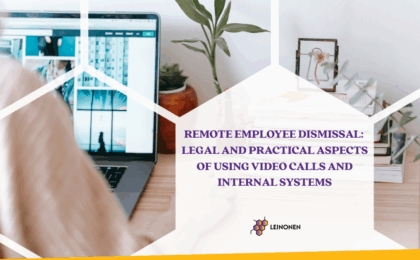The Reregister shall initiate liquidation of a legal entity, if within one month following a warning the BO will not be disclosed
In accordance with the existing legislation legal entities were obliged to disclose their BO by submitting an application to the Register by March 1, 2018. However, a large part of legal persons still have not complied with this obligation. Therefore, the Amendments provide that if a legal company has not yet submitted an application regarding its BO and does not do so within one month following a written warning, then liquidation of the legal entity will be initiated on the basis of a decision of the Register.
Importantly, the Register has determined that limited liability companies, whose owners are foreign merchants, shall be the primary target group for achieving compliance with the obligation to disclose its BO. Therefore, it is highly recommended for all legal persons, especially those belonging to the primary target group, to submit the application for registering the BO to the Register as soon as possible, in order to avoid unanticipated liquidation of the company
.
The Register shall have right to request for additional documents
Following the entry into force of the Amendments, the Register will have the right to request additional documents that confirm the truthfulness of the information provided in the application for registration of BO. Namely, upon request by the Register, documents confirming the BO’s exercised control over the company, as well as documents confirming the BO’s identification information (copy of a personal identification document certified by a notary, certificate of a foreign Residential Register, or similar) will have to be submitted.
Obligation to provide justification in cases when it is not possible to establish a BO of a legal entity
The current regulation provides that, when it is not possible to determine the BO of a legal entity, the legal entity must verify this fact in the application submitted to the Register. Following the entry into force of the Amendments, additionally the legal entity will have to provide a justification as to why the entity has concluded that it is not possible to establish any BO by using all of the possible determination means. Moreover, upon a request of the Register, the legal entity will have to submit additional documents proving this justification.
Hereafter branches and representative offices of foreign merchants, as well as permanent establishments registered in the taxpayers’ register shall disclose their BO
The Amendments provide that hereafter branches and representative offices of foreign merchants, that are registered in the registers maintained by the Register, as well as permanent establishments of foreign entities that are registered in the taxpayers’ register maintained by the State Revenue Service (hereinafter — the SRS) shall disclose their BO. The norms of the law obligating the aforementioned subjects to disclose their BO will come into force on July 1, 2020.
Respectively, branches and representative offices of foreign merchants that are registered in the registers maintained by the Register, shall disclose their BO by submitting an application to the Register until January 1, 2021. If the BO will not be registered by January 1 2021, the respective branches and representation offices of foreign merchants shall be excluded from the register.
However, permanent establishments of foreign merchants that are registered in the taxpayers’ register maintained by the SRS, shall disclose their BO by submitting an application to the SRS by January 1, 2021. If the BO are not registered by January 1, 2021, the respective permanent establishments of foreign merchants shall be excluded from the taxpayer’s register.
BO will be registered by default
The current regulation provides for an exception that legal persons shall not submit the application on BO to the Register if the status of BO of the legal person arises from the status of the natural persons within that legal person. By default the BO are considered to be: (1) shareholders of limited liability company — natural persons who own more than 25 % of capital shares; (2) members of a partnership, if there are no more than 3 members in a partnership; (3) owners of individual companies; (4) owners of agricultural or fishing farms; (5) members of board of foundations. In these cases legal persons were only obligated to submit an application to the Register if the BO was another person.
Following entry into force of the Amendments, the Register, in the above-specified cases, will register the respective natural persons as BO by default, unless the legal person informs the Register until July 1, 2019 that the BO is another natural person.
More severe criminal penalties for offences related to non-compliance with the obligation to disclose BO
At the same time, on June 6, 2019, amendments to the Criminal Law were supported in the third reading by the Latvian Parliament. The respective amendments provide for more severe criminal penalties for the offence of non-provision of the information specified in law regarding the BO or provision of knowingly false information. Namely, a natural person may be punished with deprivation of liberty for a period of up to 1 year (previously, the most severe punishment was temporary deprivation of liberty). However, if by the mentioned activities a substantial harm has been caused to the State or business, or to the rights and interests of other persons protected by law then a person might be punished with a deprivation of liberty for a period of up to 2 years (previously, the most severe punishment was deprivation of liberty for a period of up to 1 year).
If you need assistance with registration of BO or you have any other questions regarding the forthcoming Amendments, we invite you to contact lawyers of Leinonen Latvia.
This information has been prepared by Leinonen Latvia, Tax & Legal Advisory Department.



